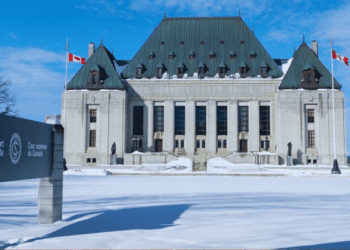By David Collins, May 23, 2023
Canada formally accepted the World Trade Organization (WTO) Agreement on Fisheries Subsidies (AFS) on May 2nd, becoming the fifth WTO member, and the second large economy member after the US, to do so. This is encouraging news and shows that Canada is taking its role in supporting global trading rules seriously.
The AFS prohibits support for illegal, unreported and unregulated fishing, bans support for fishing overfished stocks, and ends subsidies for fishing on the unregulated high seas, meaning those parts of the world’s oceans outside the territorial limits of coastal states. The agreement was concluded at the 12th WTO Ministerial meeting last June, a pivotal event in the recent history of the WTO, which has struggled to remain relevant in a world of growing antipathy to free trade as well as a predilection for bilateralism (now termed ‘friend-shoring’). The agreement’s conclusion was rightly heralded as an achievement for the beleaguered WTO, having delivered precious few multilateral initiatives for free trade since its glory days of the 1990s.
Over-fishing, exacerbated by government subsidization in many countries, is a classic example of the ‘Tragedy of the Commons’ – a resource which is shared will ultimately be exhausted through individual self-interested lack of restraint on consumption. As any economist would tell you, subsidization tends to create inefficiencies in the form of over-production. In the case of ocean fishing where there is a finite, if theoretically renewable supply, there is a real risk that unchecked state support could lead to over-fishing, eventually depleting one of the key sources of food for many countries around the world.
At the acceptance ceremony in Geneva, where the WTO’s headquarters are located, Canada’s Ambassador to the WTO, Nadia Theodore, described the AFS as “the first environmental agreement to be negotiated at the WTO since its inception” and one which makes “important progress in addressing harmful fisheries subsidies, such as subsidies to illegal, unreported and unregulated fishing.” The key word here is “progress” – the AFS will not eliminate fishing subsidies. It merely represents a step towards their reduction. Indeed, the AFS is a much weaker instrument than many WTO members had hoped for. While the agreement goes some way toward limiting government subsidies for illegal fishing with a view to slowing the depletion of the world’s rapidly declining fish stocks, the commitments were severely watered down due to resistance from certain developing countries, notably India, which was justifiably concerned about food insecurity for its 1.4 billion people.
The final text of the AFS includes a broad exemption for various forms of government support for capacity building in the fishing industry. Lacking the force of a binding commitment, WTO Members commit merely to “take special care and exercise due restraint when granting subsidies to fishing or fishing-related activities regarding stocks the status of which is unknown.” Moreover, since acceptances from two-thirds of the WTO’s 164 members are needed for the AFS to come into effect, the agreement still has a long way to go before it becomes international law. Even with this best-efforts language and uncertain future, the fishing agreement should hopefully contribute to the towards preservation of one of the world’s most vital and fragile resources while addressing food insecurity.
Canada’s early support for the AFS is important because Canada has a sizable fishing industry (notably, though, this is not even in the world’s top ten, a list led by China, which catches over 11 million tonnes per year and has not yet accepted the AFS). Canada also contributed $1.4 million to the WTO Fisheries Subsidies Trust Fund, established to help developing and least developed member countries implement the agreement by identifying and reforming harmful fisheries subsidies, such as those that subsidize illegal, unreported, and unregulated fishing.
From an environmental standpoint, Canada’s commitment to the AFS sends a strong signal that it is dedicated to the protection of the world’s oceans. Economically speaking, Canada’s support for the IFS reflects its sensitivity to the need to conserve a valuable, shared resource. Signing on to the IFS also solidifies Canada’s ongoing support for the WTO as a champion for global trade rules. The WTO needs friends and Canada is one of its best.
Perhaps most importantly of all, Canada’s formal acceptance of the AFS demonstrates its awareness of the harms that can ensue from unbridled state support of industry – a view that appears to be under increasing threat in an era of US President Biden’s reckless Inflation Reduction Act, the EU and UK’s relentless fixation on Net Zero emissions to control climate change, and worst of all, the policy which arguably triggered renewed interest in interventionism in the first place, Made in China 2025. It is encouraging to see that the WTO, and Canada as a leading member, still believe in the role of markets in achieving sustainable progress.
David Collins is a professor of International Economic Law at City, University of London.






